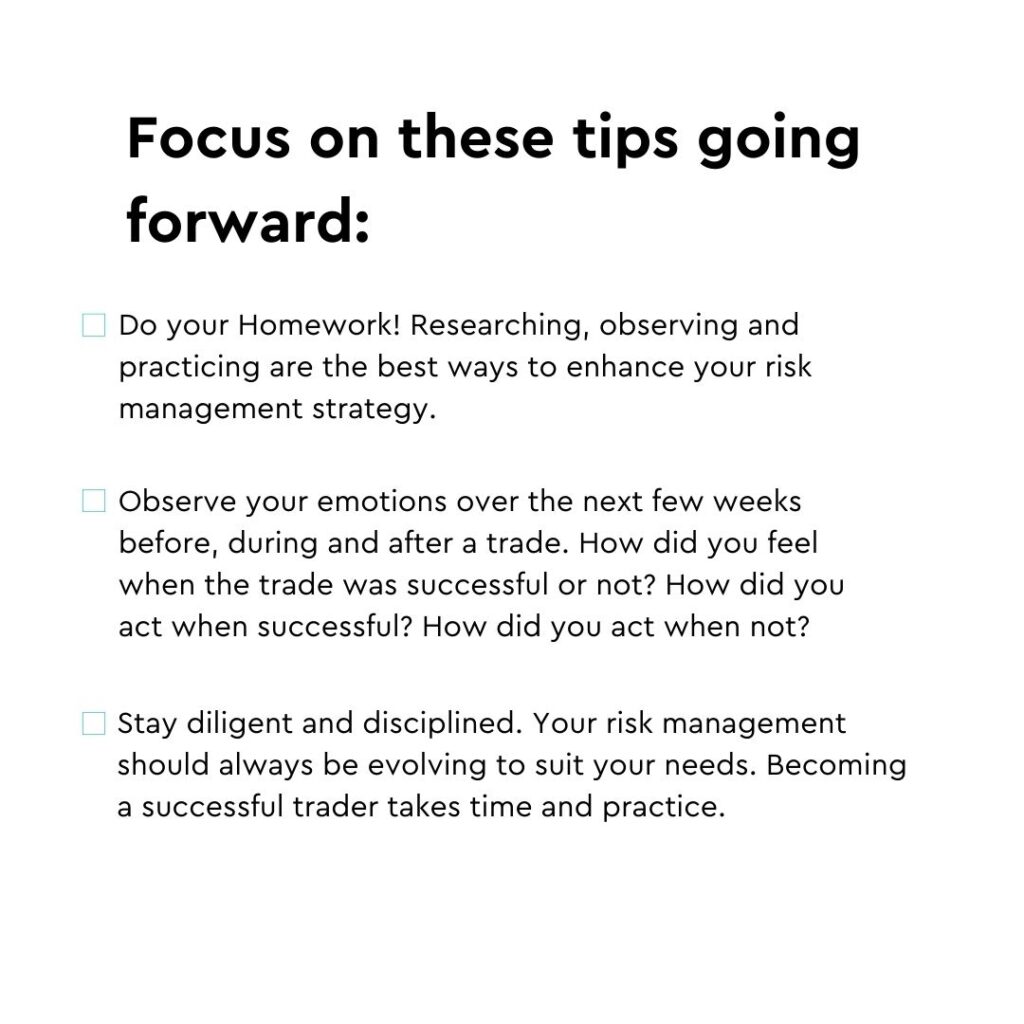These four trading emotions are found not only in Forex trading but in our personal lives as well. These four emotions are rooted in fear. I want to briefly touch on the problem and how to mitigate them. In doing so, I hope to create awareness of their impact.
Trading Emotions
To adequately address the four fears, we must shine a light on the roots of risk, ourselves. Humans are inherently emotional beings. Every day, we find ourselves in situations that impact our emotional state. Music, family, friends, coworkers, social media, local and global news all contribute. We have to do our best not to let the negatives affect our overall emotional well-being. No matter how hard we try to avoid the sad songs, the grumpy boss, or the emotionally charged socio-political climate, they’ll find us one way or another. Our job is to implement a risk management strategy, or in simpler terms, best practices to reduce the negativity and surround ourselves with positivity.
The same principle applies to Forex trading. Take calculated risks. Part of a successful risk management strategy is identifying where the risk is and how to deal with it.
Can we trade without emotions?
No, humans are inherently emotional. If we weren’t, we’d be no different from robots. It’s part of our nature. Instead, we must learn to:
- PERCEIVE emotion
- UNDERSTAND emotion
- MANAGE emotions then
- USE your emotion
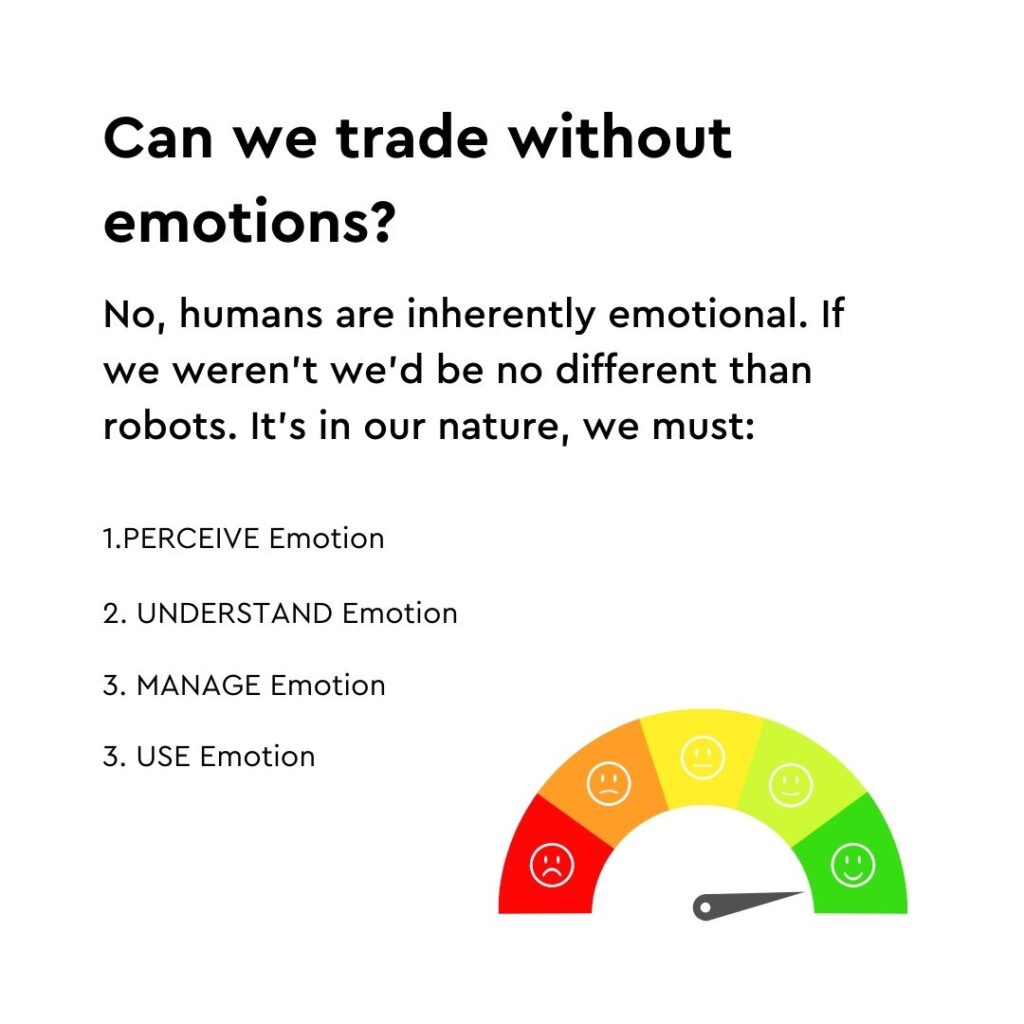
Rarely do emotions lead to sound decision-making, especially emotional responses to fear! Our animalistic brains are hardwired to avoid pain and discomfort. When our trading plan starts to fail, emotions cause us to hit the panic button.
A solid risk management plan is a contingency for traders to fall back on if their original plan doesn’t go… well… as planned (pun intended). Much like a backup parachute.
Sit down and rank the biggest threats to the success of your trading strategy. Did you place yourself and your trading emotions at the top of that list? If not, you should be!
Here are four fears you need to address to be able to develop a risk management plan:
- The Fear of Being Wrong
- The Fear of Losing Money
- The Fear of Missing Out
- The Fear of Leaving Money on the Table
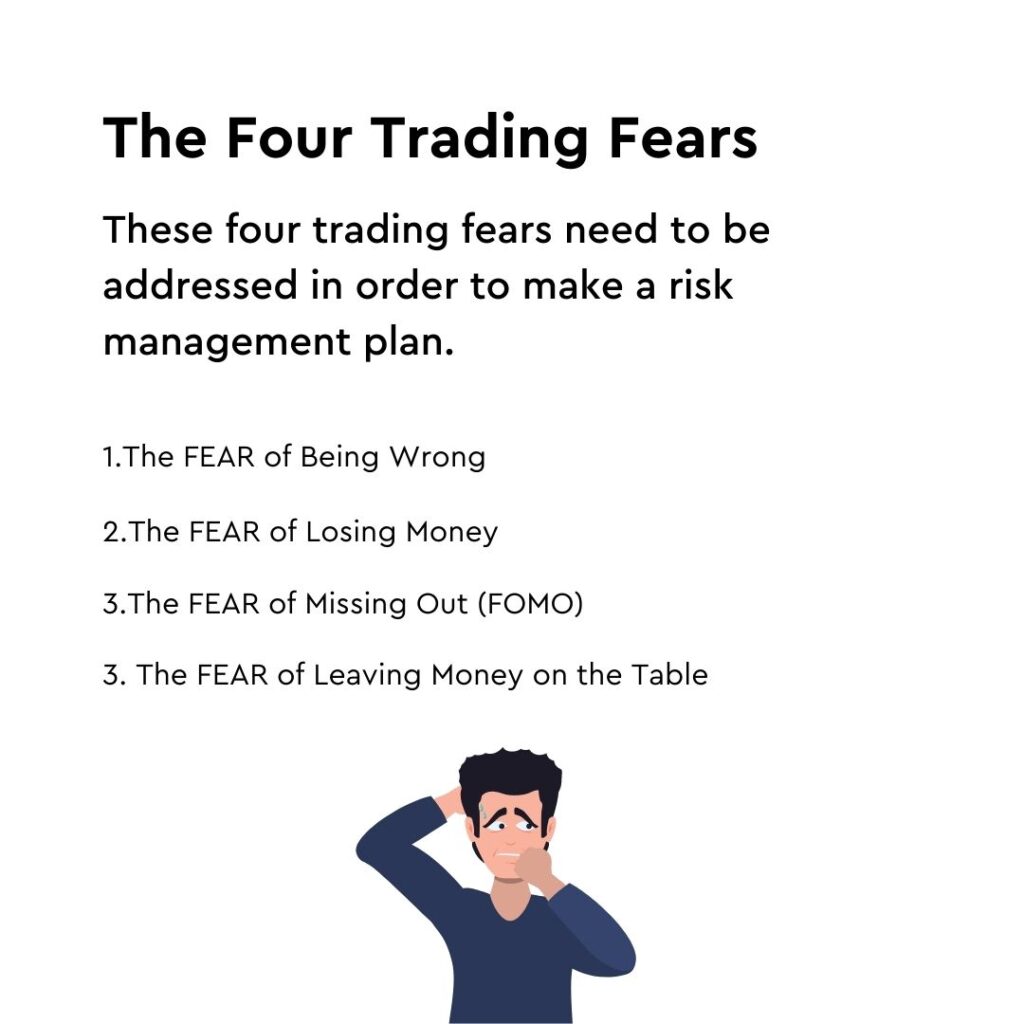
In other terms, these are the four fears of feeling pain. Each causes pain and is very real. Our ability to take pain leads us to be better traders. Like a boxer, the more resilient we are to pain, the longer we can stay in the fight.
There is a dichotomy between trading with and without fear. If we trade with too much fear, we’ll allow the four fears to consume us. If we trade without fear, we become reckless, irresponsible and risk losing an unnecessary amount of our money.
1. The FEAR of Being Wrong
Problem
The fear of being wrong is a learned condition. If we answer a question wrong in class or at work in front of our peers, it leads to embarrassment and potential judgment of our abilities. I’m sure as a child we’ve all done or said wrong things to our parents, siblings, or friends that leads to punishment and discipline from our parents. It’s not fun to be punished for wrongdoings; it’s a form of pain we’re conditioned to avoid.
Remedy
Is it possible to never be wrong? No, of course not. Failure is the best teacher. As Forex traders, we need to look at loss as an opportunity to learn something new about ourselves, the market, whatever it may be.
However, with the right risk management strategy, we control how much pain we feel.
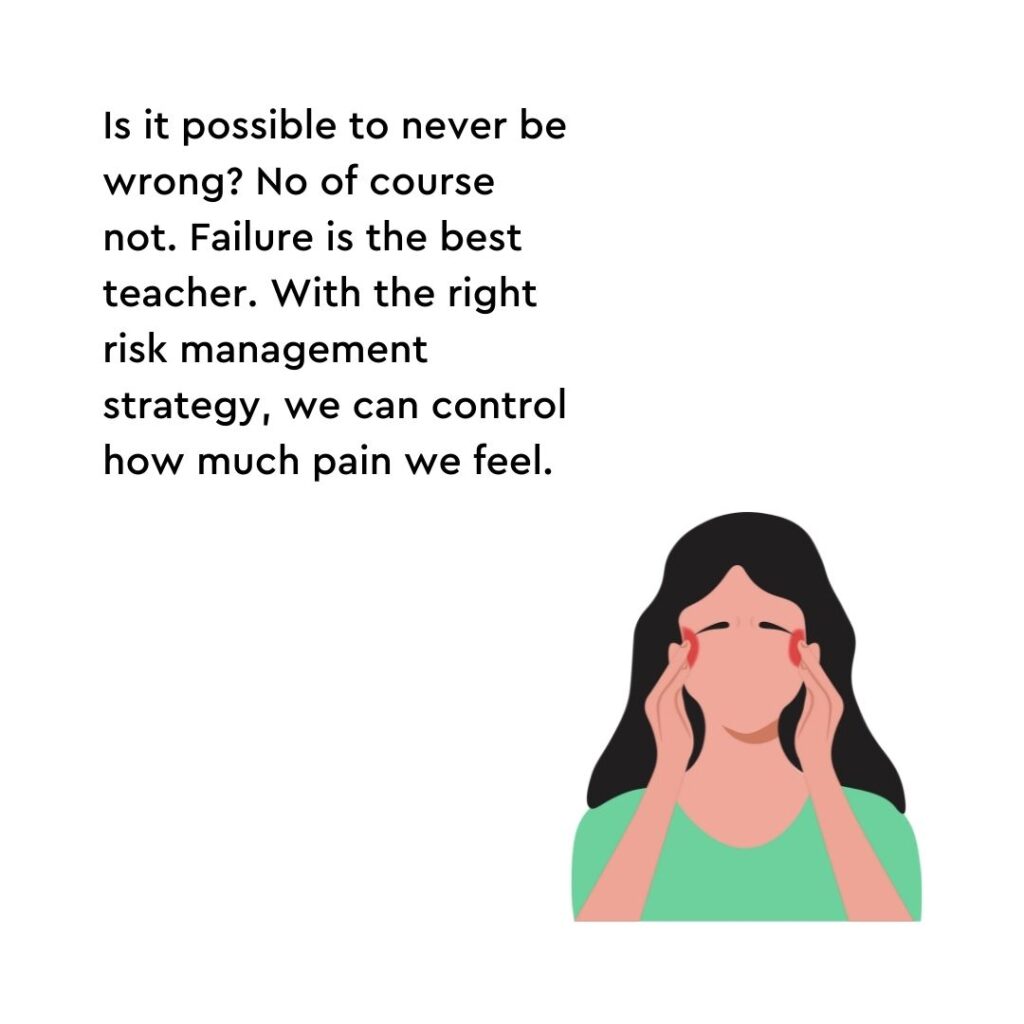
2. The FEAR of Losing Money
Problem
Often our societal status is centered around wealth and possessions. We live in a culture that values having “cool” things like cars, jewelry, watches, exotic destinations, the big house, and a big bank account. If we lose our money, we lose our status or popularity.
If traders have bad financial habits such as spending more than they make (on, oh, I don’t know, cars, jewelry, technology, houses, vacations), they’re more susceptible to making bad decisions as traders. If the bank account is constantly running low, fear of losing money greatly affects trading decisions and outcomes.
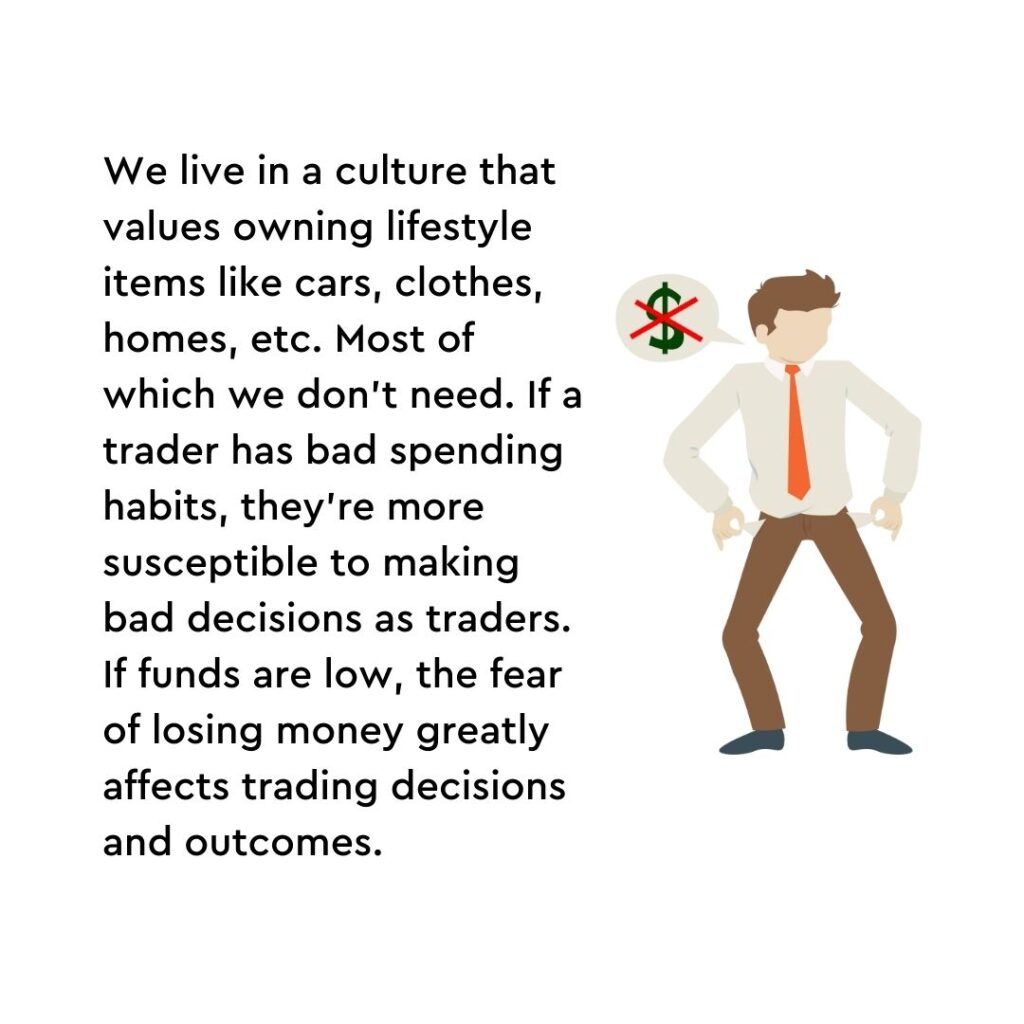
Remedy
Utilizing proper risk management will help you overcome the fear of losing money. Again, YOU decide how much pain you want to feel by how much risk you take on. As you get more experienced, develop a better trade plan, and are more disciplined in following your risk management plan, you’ll lose fewer trades.
3. The FEAR of Missing Out
Problem
I think we can all relate to the fear of missing out. Your parents dragged you camping for a long weekend, but you’d rather be at home with friends. The fear of missing out is the fear of greed. Greed leads to anxiety. Anxious that you’re missing out on one event (as if there aren’t many more opportunities to attend later on). The fear that I AM missing out on is a “short-term gratification” focus. Another trader is making money, and so should I!

Remedy
The fear of missing out is entirely irrational. There will always be another trade, maybe a better one down the road! A trade that you get in on and others don’t, causing them to experience FOMO. Mitigate this fear by realizing there are ALWAYS more trades ahead.
4. The FEAR of Leaving Money on the Table
Problem
Like FOMO, leaving money on the table is another fear linked with greed. This often leads to traders holding on to a trade too long with the “Let it ride!” mindset that cleans out their pockets.
Could I make more money if I stay in the trade a little longer? If I get out now, am I missing my opportunity to make more money?
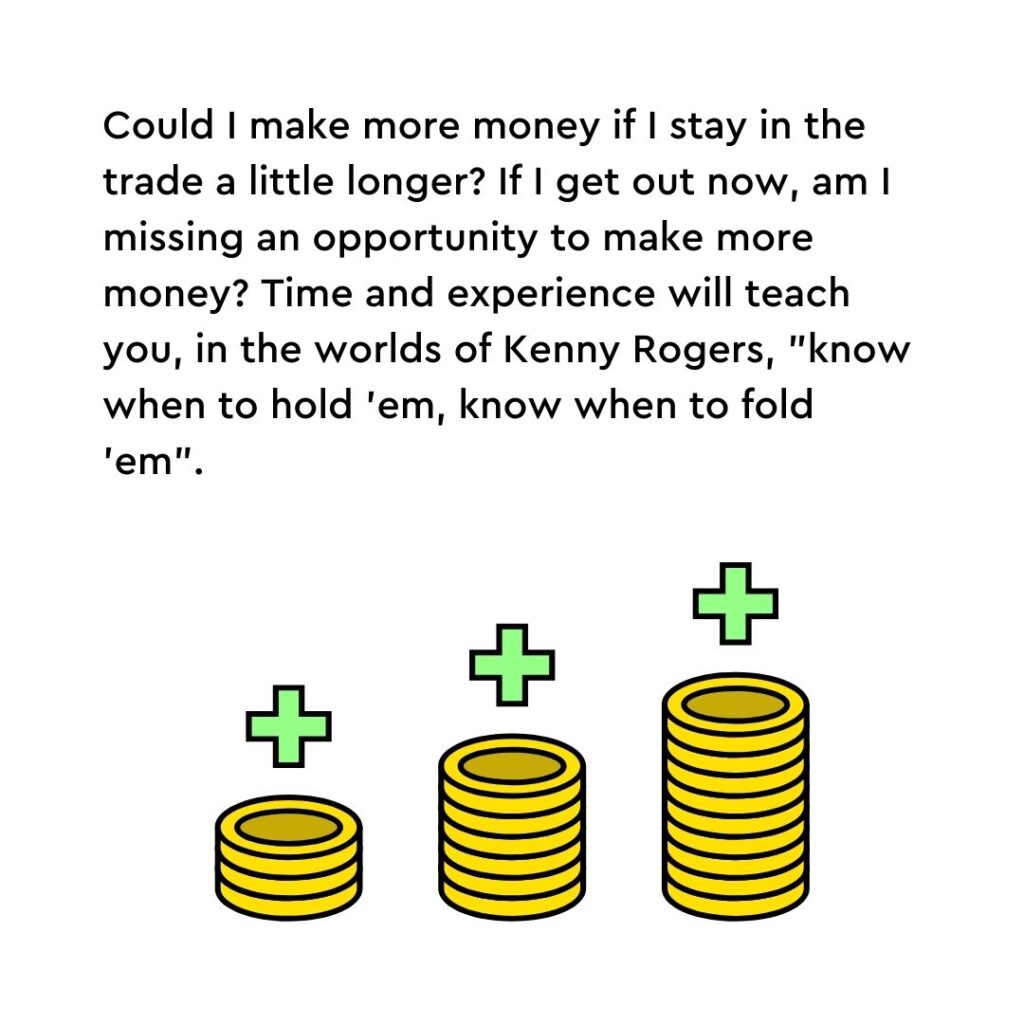
Remedy
Over time you’ll gain a better understanding of “know when to hold ‘em, know when to fold ‘em.” In other words, you’ll be able to collect data that leads to a more tailored risk management strategy.
Your Next Trade
Fears are born from the unknown, experience creates knowledge, and knowledge defeats fear. Experience helps you mitigate the fears that prevent you from becoming the trader you know you can be. Develop a long-term mindset, overcome your trading fears and master your trading emotions.
Focus on these three trading tips going forward:
- Do your homework! Researching, observing, and practicing are the best ways to enhance your risk management strategy.
- Observe your emotions over the next few weeks before, during, and after a trade. How did you feel when the trade was successful or not? How did you act when successful? How did you act when not?
- Stay diligent and disciplined. Your risk management strategy should always be evolving to suit your needs. Becoming a successful trader takes time and practice.
